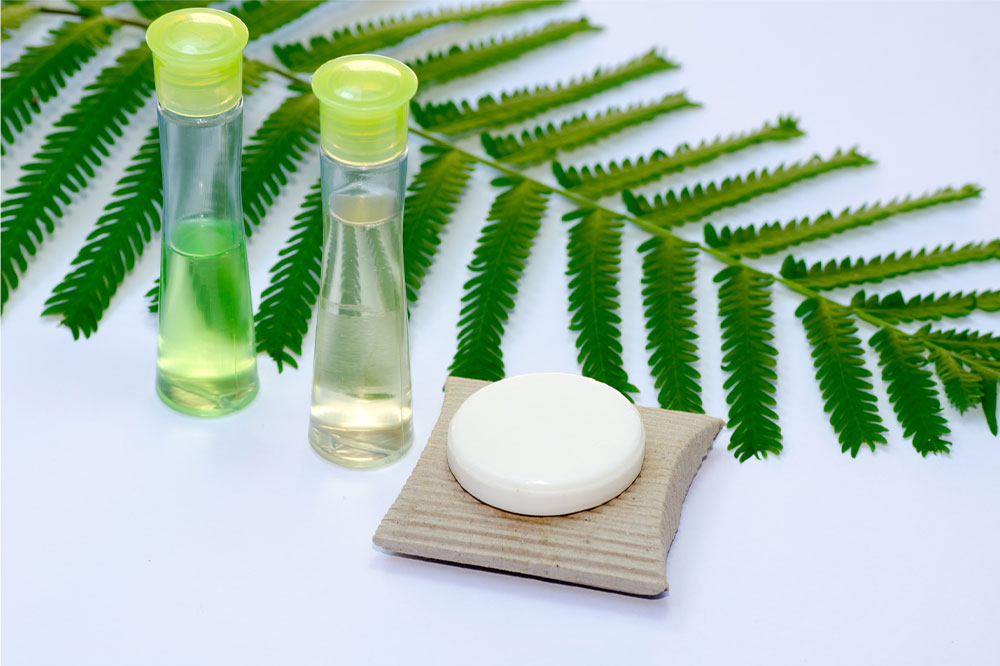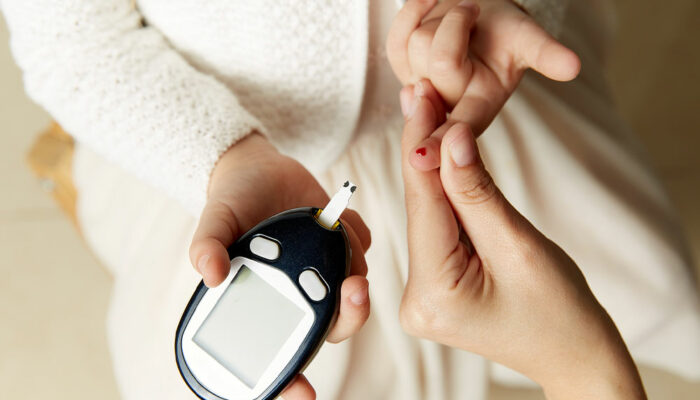Tips to finding the right soap to manage eczema

Eczema is a skin disease marked by flaky, red, itchy patches that can be quite uncomfortable and may bleed. People with eczema or other skin diseases should be cautious when using cleansers, such as soaps and body wash. The condition can worsen with use of harsh soaps and detergents, since they will further aggravate the flare-up. To keep the symptoms under control, you can use a mild, skin-friendly soap and avoid chemical irritants.
Tips for finding the right soap if you have eczema
While it’s important to use soaps that won’t irritate the skin or aggravate eczema, finding the most suitable one for your skin might be challenging. Here are the six most important tips for finding the right soap when dealing with eczema or other skin diseases:
Avoid fragrances and other harsh chemicals
Usually, people with eczema may find that their skin responds best to mild skincare items devoid of preservatives and perfumes. The American Academy of Allergy, Asthma, and Immunology suggests using soap-free cleansers. The substance that causes soap to froth, sodium lauryl sulfate, is likely absent from several of these cleansers. Many soaps’ detergents, such as sodium lauryl sulfate, rob the skin of its natural oils, causing tightness and itchiness. People with eczema or skin diseases should carefully read the labels on soaps and cleansers to avoid such chemicals.
Ingredients to avoid
Here are a few ingredients that should be avoided in your soap if you have eczema or other skin diseases:
Allergens
You should seek out items devoid of artificial fragrances because these can be allergens.
Alkaline
While many soaps have balanced pH levels or levels of acidity, you should still look for alkaline soaps because acidic alternatives might weaken the skin’s protective barrier and raise pH levels.
Deodorant
Since deodorant soaps typically contain skin-irritating components, you should avoid using them.
Dye
You should avoid soaps containing artificial or added colors since they may cause allergies.
Harsh soaps
Salicylic acid, propylene glycol, and formaldehyde are a few chemicals that may aggravate symptoms of eczema or related skin diseases.
Products that have received endorsements from associations like the NEA may be more suited for people with eczema or other skin diseases.
Glycerin
Glycerin is an element that works as a humectant, a chemical that retains moisture, to counteract the drying effects of soap. Most soaps and lotions contain humectants. Your skin actively absorbs moisture thanks to glycerin. You may have observed that natural soap appears to “sweat”; this is because glycerin, which is present in high concentrations in soaps, absorbs moisture from the air. The skin gets moisturized in the same way. Even though many naturally manufactured soaps contain glycerin, it’s important to remember that natural soaps are only a smart choice if they aren’t highly fragranced, to fight skin diseases.
Syndet
Human skin typically has a pH between 4 and 6, whereas soap typically has a pH between 9 and 10. Due to this difference, traditional soap may cause the skin’s pH to rise to a level that aggravates eczema or other skin disease symptoms. It is advised to use solid washing bars containing synthetic detergent, or syndet for short, to prevent the aggravation. Non-soap detergents are the main component of syndet bars. Syndets feature a neutral or slightly acidic pH, making them less abrasive to the skin than regular soaps. Due to their mildness and moisturizing qualities, syndet bars are suitable for cleansing dry, eczema-prone skin. Syndet lessens the severity of eczema lesions, preserves hydration, and enhances the general state of the skin. This experiment investigated the advantages of gentle washing with syndet for people with eczema.
Avoid sodium lauryl sulfate
Sulfates, like syndet, are surfactants that draw water and oil. They are often used as foaming agents in soaps, shampoos, and detergents. One specific type of sulfate is sodium lauryl sulfate (SLS). Sulfates are effective in cleaning; however, they can also deplete the skin of its natural oils. This causes dry skin, irritation, and allergic responses. Therefore, choosing sulfate-free soaps (or SLS-free soaps) for skin prone to skin diseases may be a smart option.
Consult a doctor
Choosing the right type of soap for your skin might be challenging, with the long lists of restricted elements, contradictory recommendations, and false advertisements. Since every person’s skin is unique, it will react differently to various soaps. As a result, what treats eczema for one person may not work well for another.
Additionally, eczema or skin diseases might alleviate or aggravate with time, making some products less useful in the long run. For advice on cleansers, you must speak to a dermatologist. You can choose the best products after considering various factors like your skin type and the type and level of eczema symptoms, etc. If you have a strong allergic reaction to a substance or if your eczema exhibits infection-related symptoms like pus production, you should seek immediate assistance from a dermatologist.
Best natural soaps for eczema
The following are some of the best soaps with natural ingredients for alleviating eczema:
Shea butter soap
This soap contains, in addition to shea butter, plant oils like coconut and olive oil and essential oils like lavender and tea tree oil. Shea butter is rich in antioxidants and fatty acids, helping moisturize dry, itchy skin brought on by eczema flare-ups.
Aloe vera soap
Aloe vera, which contains anti-inflammatory and therapeutic characteristics, works wonders to moisturize dry skin and lessen the redness brought on by eczema flare-ups.
Oatmeal soap
Oatmeal soap can help exfoliate the skin and reduce eczema-related itchiness and burning. Being a natural cleaner, oatmeal helps remove dirt, bacteria, and other pollutants from the skin, alleviating eczema symptoms.
Goat milk soap
As a mix of lactic acid, natural lipids, proteins, vitamins A and D, and minerals, goat milk soap helps soothe sensitive skin irritated with rashes. Its moisturizing qualities aid in hydrating your skin and lessen the scaliness that frequently accompanies dermatitis.
Pure coconut oil soap
People with eczema may find this soap helpful. Because pure oil contains a lot of hydrating lauric acid, it is a great option for people with extremely dry skin. Additionally, it possesses antibacterial and anti-inflammatory qualities that could lessen flare-ups.
Summing up
In conclusion, choosing the right soap for eczema can be a challenge. It’s important to understand the ingredients, types of soap, and potential eczema triggers. You must speak to your dermatologist to find the right products for your skin type that can help reduce irritation. With accurate products and a proper skincare routine, you can find relief and hopefully manage your eczema symptoms.

